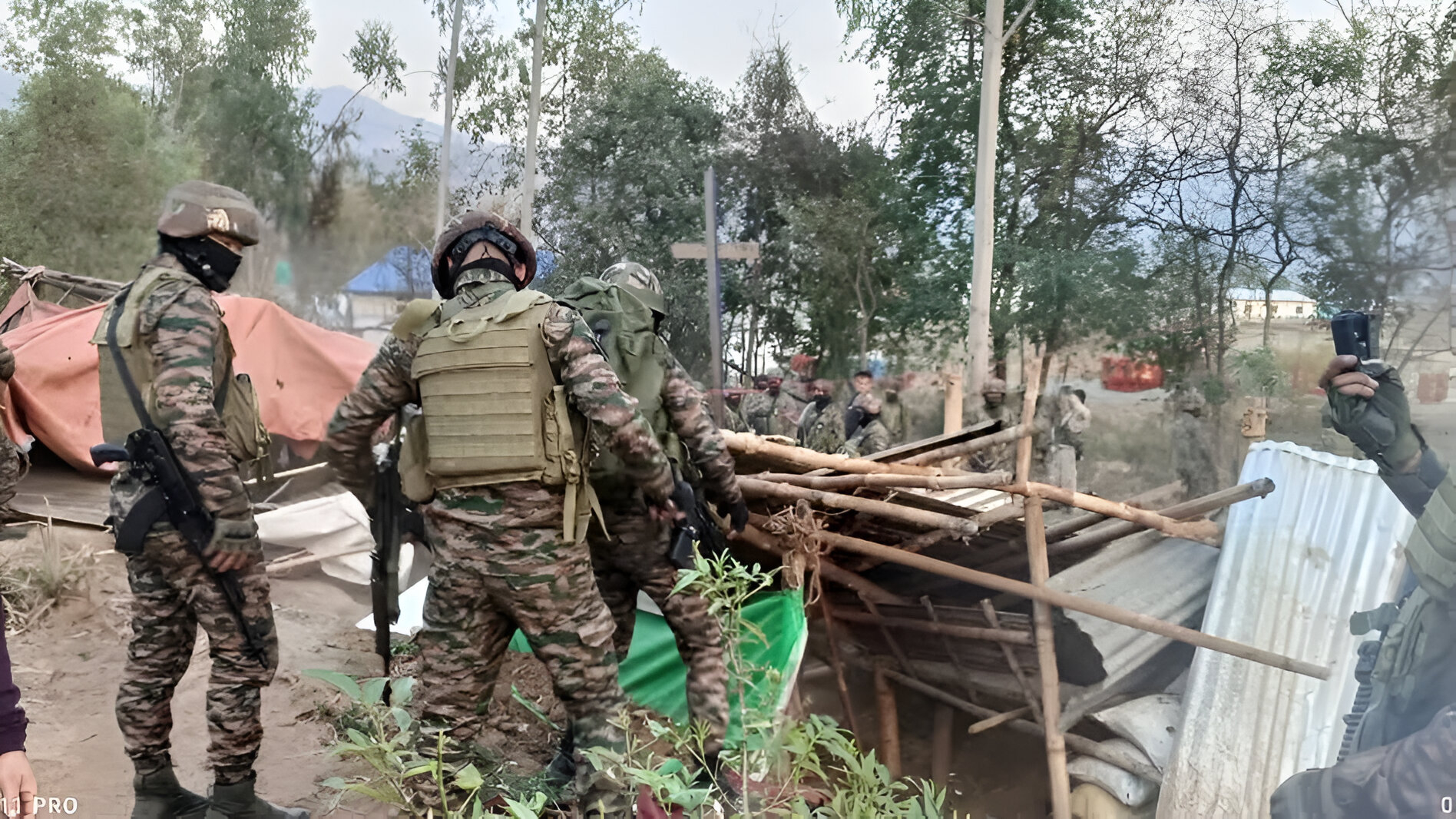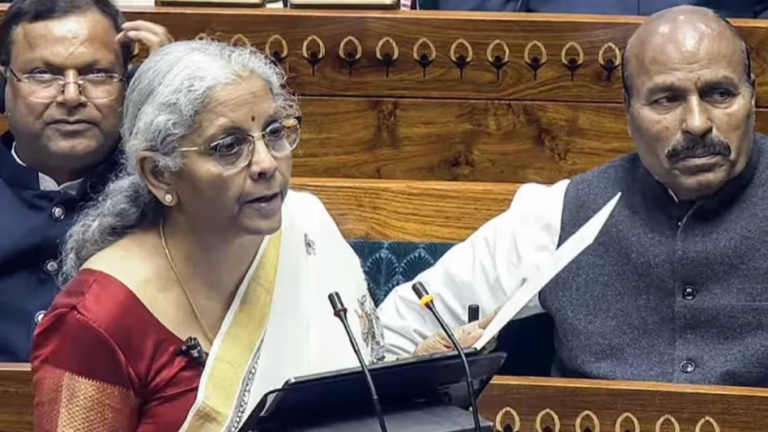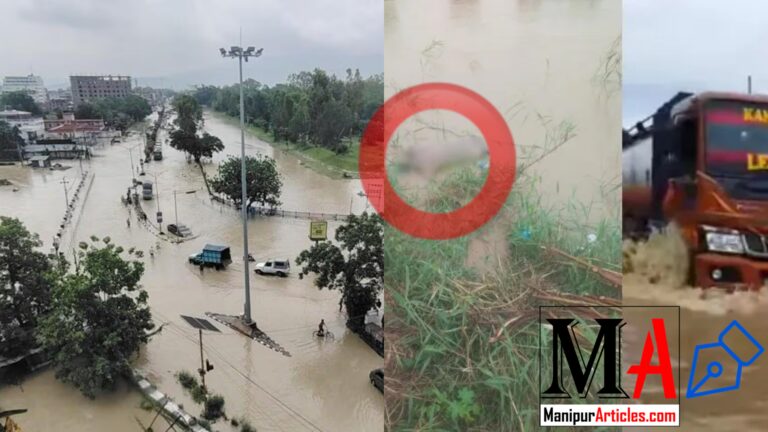Manipur Police Crackdown on Illegal Arms: 12 Bunkers Seized and Destroyed
News Summary
In a dramatic move to secure the region, the Manipur Police have executed a major crackdown on illegal arms. In this recent operation, law enforcement officials seized a significant cache of illicit weaponry and successfully destroyed 12 bunkers allegedly used for storing these arms. The operation underscores a determined effort to dismantle criminal networks involved in arms trafficking, while bolstering regional security and restoring public confidence.
Full Article
Introduction
Imagine living in a community where the threat of illegal arms lurks in the shadows, ready to disrupt peace and security. For the people of Manipur, this fear has become all too real—until now. In a bold and decisive move, the Manipur Police have taken the fight to the criminals, executing a high-impact operation that resulted in the seizure of illegal arms and the destruction of 12 clandestine bunkers. This crackdown is not only a testament to the resolve of law enforcement but also a crucial step toward ensuring a safer future for the region. So, what does this operation mean for the people of Manipur, and how might it change the landscape of local security? Let’s explore this unfolding drama step by step.
Understanding the Situation
At the heart of this operation is a clear message: illegal arms will not be tolerated. The authorities have zero tolerance for any activities that threaten the integrity and safety of the community. But what exactly prompted such a sweeping action? Over recent times, reports and intelligence inputs suggested that a network involved in illegal arms trafficking was operating covertly, using fortified bunkers as storage points for a variety of unlicensed weaponry. The discovery of these bunkers—hidden away in remote locations—raised serious concerns about the scale and sophistication of the operation.
Think of it like finding a secret room in your own house where someone has been hiding dangerous items. The shock and urgency of such a discovery demand immediate action, and that’s exactly what the Manipur Police delivered.
The Operation: A Closer Look
The crackdown on illegal arms in Manipur was meticulously planned and executed. Law enforcement agencies, working in close coordination with local intelligence units, began a series of covert operations aimed at uncovering and dismantling the criminal network. The operation unfolded in several phases:
- Intelligence Gathering and Surveillance:
Before any physical action could be taken, extensive surveillance and intelligence work were conducted. Officers and analysts worked around the clock, piecing together information from various sources. This phase was crucial—it was like assembling a complex jigsaw puzzle where every piece was vital to revealing the full picture of the arms trafficking network. - Strategic Raids:
Armed with actionable intelligence, the police conducted a series of raids in locations suspected of housing illegal arms. These raids were executed with surgical precision. When the time was right, teams of officers moved in, ensuring minimal collateral damage and maximum disruption to the illicit operations. The destruction of 12 bunkers marked a significant milestone in the operation, effectively eliminating key storage sites for the illegal arms. - Seizure of Contraband:
During these raids, the police uncovered and seized a large cache of illegal arms. The range of weaponry found was alarming, underscoring the potential threat such arms could pose if left in the wrong hands. From small arms to more sophisticated weaponry, the haul was a clear indicator of the network’s capabilities and reach. - Post-Operation Measures:
Following the raids, a thorough investigation was launched to identify and apprehend the masterminds behind the network. The authorities have vowed to pursue every lead, ensuring that no stone is left unturned in their quest for justice. This phase is akin to peeling back the layers of an onion—each investigation step brings law enforcement closer to dismantling the entire network.
Why This Crackdown Matters
Illegal arms trafficking is more than just a criminal activity—it’s a direct threat to public safety and national security. When unlicensed weapons fall into the hands of criminals or insurgent groups, the potential for violence escalates dramatically. For communities in regions like Manipur, which already face a range of socio-political challenges, the presence of such arms can exacerbate tensions and fuel conflicts.
By targeting the source of these weapons and dismantling the storage facilities, the police are not only removing a dangerous element from the streets but are also sending a strong message: the rule of law prevails. This operation is a beacon of hope for many citizens who have long feared the destabilizing effects of illegal arms circulation.
The Broader Security Implications
The ripple effects of this crackdown extend far beyond the immediate seizure and destruction of bunkers. Here are some of the broader security implications:
- Deterrence of Future Crime:
Criminal networks thrive in environments where enforcement is lax. This decisive action by the Manipur Police is set to deter other criminals from engaging in similar activities. Just as a well-lit street discourages vandalism, a visible and effective police presence can dissuade illicit activities. - Strengthening Community Trust:
When citizens see law enforcement taking strong measures to ensure their safety, it fosters a sense of trust and reassurance. People feel safer when they know that authorities are actively working to protect them. This operation has the potential to restore faith in local security systems and encourage community cooperation with law enforcement agencies. - Political and Social Repercussions:
Operations like these often have political ramifications. Local government and community leaders are likely to use this successful crackdown as evidence of their commitment to public safety. It can also pave the way for more robust policies and reforms aimed at combating illegal arms trafficking on a broader scale.
The Role of Technology and Intelligence
No modern security operation can succeed without the integration of advanced technology and sharp intelligence work. In this case, the Manipur Police utilized state-of-the-art surveillance tools, data analytics, and real-time communication systems to track and apprehend the culprits.
- Advanced Surveillance Systems:
Drones, CCTV cameras, and satellite imagery played a pivotal role in monitoring suspected areas. These tools provided real-time data, allowing officers to plan and execute their raids with pinpoint accuracy. - Data Analytics:
In today’s digital age, data is power. The use of sophisticated data analytics enabled the police to sift through vast amounts of information, identifying patterns and potential hotspots for illegal activity. This analytical approach is much like using a metal detector on a beach—it helps you locate the hidden treasures (or in this case, the hidden criminal operations). - Collaborative Intelligence:
The success of the operation was also due to effective collaboration between different agencies. Intelligence sharing, both within the state and with national agencies, ensured that the operation was backed by comprehensive and up-to-date information. This collaborative spirit is essential in tackling complex issues like arms trafficking.
Community Impact: Voices from the Ground
Every security operation has a human face. For the citizens of Manipur, the crackdown is more than just a police victory—it is a reassurance that their safety and well-being are a priority. Residents in the affected areas have expressed relief and hope, noting that such decisive actions are long overdue.
Imagine living in a town where every shadow could hide danger; the constant fear of violence can be paralyzing. The news of the raids and the destruction of these bunkers is like a burst of sunlight breaking through dark clouds. People are beginning to feel that the authorities are finally taking concrete steps to protect their communities.
Local teachers, shopkeepers, and community leaders have all echoed the sentiment that this operation, while only one piece of a larger puzzle, is a vital step in reclaiming the region from criminal elements. Their voices add a personal dimension to the story—a reminder that behind every strategic operation, there are real lives being safeguarded.
Political Reactions and the Way Forward
The political arena is buzzing with reactions to the crackdown. Elected representatives, government officials, and opposition leaders have weighed in on the operation, each interpreting the events through their own political lens. However, what remains unanimous across the board is the recognition of the operation’s importance for regional security.
- Government Initiatives:
Local government officials have praised the police for their unwavering commitment to law and order. They have reiterated the need for sustained efforts and additional resources to continue the fight against illegal arms trafficking. New policy initiatives and budget allocations are already being discussed in the corridors of power, aimed at fortifying security measures across the board. - Opposition Perspectives:
While some opposition figures have used the opportunity to critique past lapses in security, many have also acknowledged the significance of the current operation. The crackdown serves as a stark reminder of what can be achieved when intelligence, technology, and determination come together. - Future Policy Directions:
This operation is likely to influence future policy decisions, not only in Manipur but potentially across other regions facing similar challenges. Lawmakers are expected to push for comprehensive reforms that integrate modern surveillance techniques, robust legal frameworks, and enhanced coordination between various agencies. The goal is clear: to create an environment where illegal arms have no safe haven.
Challenges and Hurdles Ahead
Despite the success of this operation, significant challenges remain. Criminal networks are notoriously resilient, and while a major blow has been dealt to one such group, there is no guarantee that similar operations will not crop up elsewhere. Some of the hurdles include:
- Evolving Tactics of Criminals:
Criminal organizations often adapt quickly to new security measures. As technology evolves and law enforcement gets better at tracking and seizing illegal arms, criminals may resort to even more sophisticated methods. This constant game of cat and mouse means that security agencies must continually update their strategies. - Resource Constraints:
Conducting large-scale operations requires substantial resources, including manpower, technology, and financial support. In many regions, budgetary constraints can limit the scope and frequency of such operations. Ensuring that security forces are well-equipped and well-trained is an ongoing challenge that needs sustained investment. - Jurisdictional Issues:
Illegal arms trafficking networks often operate across multiple regions and even national borders. Coordinating operations and legal proceedings across these jurisdictions can be complex and time-consuming. Effective collaboration between state, national, and sometimes international law enforcement agencies is essential, but it comes with its own set of bureaucratic challenges. - Maintaining Public Trust:
While a successful crackdown boosts public confidence in the short term, maintaining that trust requires continuous efforts. Citizens need to see consistent, transparent actions that guarantee their safety over the long haul. Any lapse or perceived inaction could quickly erode the gains made by this operation.
Learning from the Past: Preventive Strategies
Prevention is always better than cure, and the recent operation in Manipur provides valuable lessons on how to mitigate the risk of future arms trafficking incidents. Here are some strategies that can be adopted:
- Regular Audits and Inspections:
Implementing regular and random audits of areas suspected of being used for illegal arms storage can help detect potential threats before they escalate. This is akin to routine maintenance on a vehicle—preventive care can avoid major breakdowns later on. - Community Engagement:
Empowering local communities to be vigilant and report suspicious activities is a powerful tool in the fight against illegal arms. When citizens are informed and engaged, they become the eyes and ears of law enforcement, creating a robust network of surveillance at the grassroots level. - Enhanced Training for Security Forces:
Regular training sessions that focus on the latest trends and tactics used by criminal organizations can prepare security forces to respond more effectively. Investing in the continuous development of law enforcement personnel ensures that they remain one step ahead of evolving threats. - Leveraging Technology:
Incorporating technologies such as artificial intelligence, machine learning, and real-time data analytics can greatly enhance the ability of police to monitor, detect, and respond to criminal activities. These technological advances serve as force multipliers, enabling law enforcement to cover more ground with greater efficiency.
The Road to a Safer Future
Ultimately, the crackdown in Manipur is a significant milestone on the road to a safer and more secure future. It sends a powerful message that illegal activities, no matter how deeply entrenched, can be dismantled with determination, modern technology, and a united community effort. The operation not only disrupts the current network but also acts as a deterrent to others who might think of venturing into similar territories.
Picture a fortress that, once under siege, has now been fortified with stronger walls and vigilant guards. That is the vision for Manipur—a region where law and order are upheld, and where every citizen can feel secure knowing that their safety is a top priority.
Conclusion
The recent crackdown by the Manipur Police on illegal arms and the destruction of 12 bunkers marks a turning point in the fight against criminal networks in the region. This operation highlights the critical importance of a proactive approach to security—one that leverages modern technology, rigorous intelligence, and strong community involvement.
While challenges remain, the determination and effectiveness demonstrated in this operation provide a blueprint for future actions. By learning from past lapses and continuously adapting to new threats, the authorities are paving the way for a more secure and resilient Manipur.
As citizens, we all share the responsibility of supporting and sustaining these efforts. The crackdown is not just a victory for law enforcement—it’s a victory for the community, a victory for justice, and a victory for the promise of a safer tomorrow. Let this operation serve as a reminder that when we come together, even the most formidable challenges can be overcome.
Frequently Asked Questions (FAQs)
Q1: What prompted the recent crackdown by the Manipur Police?
A1: The operation was triggered by credible intelligence regarding a large-scale illegal arms trafficking network. The discovery of hidden bunkers storing unlicensed weapons prompted swift action to dismantle the operation and secure the region.
Q2: How many bunkers were destroyed during the operation, and what was found inside?
A2: The police destroyed 12 bunkers, which were found to contain a significant cache of illegal arms. The variety and quantity of weaponry seized highlighted the seriousness of the threat posed by these criminal networks.
Q3: What impact does this crackdown have on the local community in Manipur?
A3: The crackdown boosts public confidence and deters future criminal activities. Citizens feel safer knowing that proactive measures are in place, and the operation is expected to restore trust in local law enforcement efforts.
Q4: What technological tools did the Manipur Police use during this operation?
A4: The police employed advanced surveillance systems, including drones and CCTV, along with data analytics and real-time communication networks. These tools were essential in tracking suspects, planning strategic raids, and ensuring a successful operation.
Q5: What future steps are being considered to prevent similar incidents in Manipur?
A5: Authorities are looking into enhanced community engagement, regular audits, continuous training for security forces, and leveraging cutting-edge technology to create a robust, proactive defense against illegal arms trafficking.




